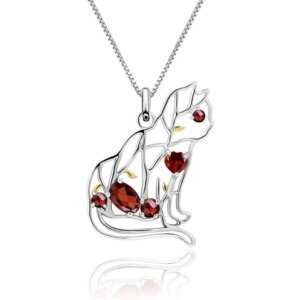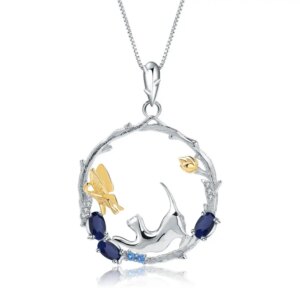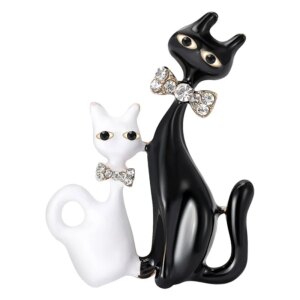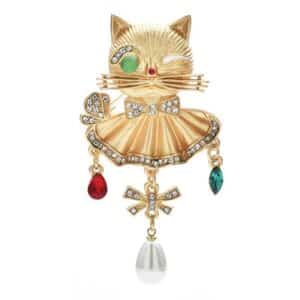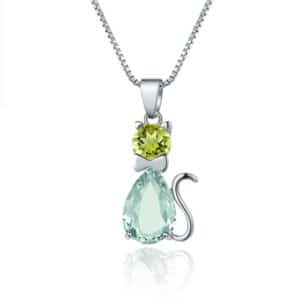Cats hiccups can be a curious and sometimes concerning phenomenon for pet owners. At Cat Karma Creations, we understand the importance of keeping our feline friends healthy and happy. This article delves into the causes, symptoms, and treatments of cat hiccups, providing valuable insights and practical tips. Discover how to differentiate cat hiccups from other respiratory issues and learn when to seek veterinary help. By the end, you’ll be better equipped to ensure your feline friend’s health and well-being.
Common Causes of Cats Hiccups
Rapid Eating and Drinking
One of the most common causes of cat hiccups is rapid eating or drinking. When your cat gulps down food or water too quickly, it can ingest air, leading to hiccups. To address this issue, we recommend using a slow-feeder bowl or spreading the food out on a plate to encourage your cat to eat more slowly. You can also provide smaller, more frequent meals throughout the day to prevent your cat from overeating at once. For more tips and products, visit our All Jewelry page.
Stress and Anxiety
Cats can experience stress and anxiety, which can manifest as hiccups. Changes in the environment, such as moving to a new home, the introduction of a new pet, or even loud noises, can trigger stress. Creating a calm and comfortable environment for your cat can help reduce stress levels. Consider using pheromone diffusers, providing hiding spots, and maintaining a consistent routine to help your cat feel more secure. You can find stress-relieving gifts for your cat on our Cat Themed Jewelry page.
Allergies and Irritants
Allergies and irritants can also cause cat hiccups. Common allergens include pollen, dust, and certain foods. Irritants like smoke, perfumes, and cleaning products can also trigger hiccups. If you suspect your cat is experiencing allergies or irritants, consult your veterinarian for a proper diagnosis and treatment plan. They may recommend allergy testing, medications, or changes in your home environment to alleviate symptoms. For allergy-friendly products, check out our Nature Inspired collection.
Hairballs and Digestive Issues
Hairballs and digestive issues can lead to cat hiccups. When your cat grooms itself, it can ingest loose fur, which can form hairballs in the stomach. These hairballs can irritate the diaphragm, causing hiccups. Regular grooming and the use of hairball prevention products can help reduce the occurrence of hairballs. Additionally, feeding your cat a high-fiber diet can aid in digestion and prevent hairball formation. For grooming tools and accessories, visit our Sterling Silver collection.
Respiratory Infections
Respiratory infections, such as upper respiratory infections (URIs) or bronchitis, can cause cat hiccups. These infections can affect the diaphragm and respiratory system, leading to hiccups. If you suspect your cat has a respiratory infection, it’s important to consult your veterinarian for a proper diagnosis and treatment. They may prescribe antibiotics, anti-inflammatory medications, or other treatments to address the underlying infection and alleviate symptoms.
Symptoms of Cats Hiccups
Repetitive Hiccup Sounds
The most obvious symptom of cat hiccups is the repetitive hiccup sound. These sounds are often described as a series of short, sharp breaths or coughs. While hiccups are usually harmless, they can be distressing for your cat if they occur frequently or persist for an extended period. Pay attention to the frequency and duration of the hiccups to determine if further action is needed. If you have any concerns, feel free to contact us at (800) 343-1604 or info@catkarmacreations.com.
Frequency and Duration
Cat hiccups can vary in frequency and duration. Some cats may experience occasional hiccups that last for a few seconds, while others may have more frequent or prolonged episodes. If your cat’s hiccups are infrequent and short-lived, they are likely not a cause for concern. However, if the hiccups persist or become more frequent, it’s important to monitor your cat’s symptoms and consult your veterinarian for further evaluation.
Associated Symptoms
In some cases, cat hiccups may be accompanied by other symptoms. These can include coughing, sneezing, difficulty breathing, or vomiting. If your cat is experiencing any of these symptoms along with hiccups, it could indicate an underlying health issue. Pay attention to any changes in your cat’s behavior or physical condition and seek veterinary advice if you notice any concerning signs.
Treating Cats Hiccups
Home Remedies and Natural Treatments
Mild cases of cat hiccups can often be treated at home with natural remedies and preventive measures. Here are some steps you can take to help alleviate your cat’s hiccups:
- Encourage your cat to eat and drink more slowly by using a slow-feeder bowl or spreading the food out on a plate.
- Create a calm and stress-free environment for your cat, using pheromone diffusers and providing hiding spots.
- Regularly groom your cat to prevent hairballs and aid in digestion.
- Feed your cat a high-fiber diet to help prevent hairball formation.
- Use natural remedies such as chamomile tea or ginger to soothe your cat’s digestive system.
Veterinary Interventions
If your cat’s hiccups persist or are accompanied by other concerning symptoms, it’s important to consult your veterinarian. They can perform a thorough examination to determine the underlying cause and recommend appropriate treatments. Depending on the diagnosis, your veterinarian may prescribe medications, recommend dietary changes, or suggest other interventions to alleviate your cat’s symptoms and improve their overall health. For more information, visit our Contact Form.
Preventive Measures
To prevent cat hiccups, it’s important to address the underlying causes and take proactive steps. Here are some tips to help prevent cat hiccups:
- Encourage your cat to eat and drink slowly by using a slow-feeder bowl or spreading the food out on a plate.
- Create a calm and stress-free environment by providing hiding spots, using pheromone diffusers, and maintaining a consistent routine.
- Regularly groom your cat to prevent hairballs and aid in digestion.
- Feed your cat a high-fiber diet to help prevent hairball formation.
- Minimize exposure to allergens and irritants by using air purifiers, avoiding strong scents, and keeping your home clean.
When to Consult a Veterinarian
Persistent or Severe Hiccups
If your cat’s hiccups persist for an extended period or are severe, it’s important to consult your veterinarian. Persistent hiccups can be a sign of an underlying health issue, such as a respiratory infection or digestive problem. Your veterinarian can perform a thorough examination and recommend appropriate treatments to alleviate your cat’s symptoms and improve their overall health. For more information, contact us at (800) 343-1604 or info@catkarmacreations.com.
Accompanying Symptoms
If your cat’s hiccups are accompanied by other concerning symptoms, such as coughing, sneezing, difficulty breathing, or vomiting, it’s important to seek veterinary advice. These symptoms can indicate a more serious health issue, and early intervention can help prevent complications and improve your cat’s prognosis. Your veterinarian can perform diagnostic tests, such as X-rays or blood work, to determine the underlying cause and recommend appropriate treatments.
Chronic Conditions
If your cat has a chronic condition, such as asthma or heart disease, it’s important to monitor their symptoms closely and consult your veterinarian regularly. Chronic conditions can increase the risk of respiratory issues and other health problems, and early intervention can help manage symptoms and improve your cat’s quality of life. Your veterinarian can provide guidance on managing your cat’s condition and recommend appropriate treatments to alleviate symptoms and prevent complications.
Comparison of Cat Hiccups with Other Respiratory Issues
Understanding the differences between cat hiccups and other respiratory issues can help you identify when to seek veterinary help. Here is a comparison table to highlight the key differences:
| Feature | Cat Hiccups | Cat Coughing | Cat Sneezing | Cat Vomiting |
|---|---|---|---|---|
| Causes | Rapid eating, drinking, stress | Infections, allergies, heart disease | Allergies, infections, irritants | Overeating, hairballs, dietary issues |
| Symptoms | Repeated hiccup sounds | Persistent coughing | Frequent sneezing | Vomiting, retching |
| Frequency | Occasional, usually brief | Can be chronic | Can be frequent | Occasional to frequent |
| Treatment | Home remedies, stress reduction | Medications, environmental changes | Allergy management, humidifiers | Dietary changes, medications |
| When to Consult a Vet | If hiccups persist or are severe | If coughing is chronic or severe | If sneezing is frequent or severe | If vomiting is frequent or severe |
Popular Quote
“Cats are a mysterious kind of folk. There is more passing in their minds than we are aware of.” – Charles de Gaulle
Statistical Fact
According to the American Veterinary Medical Association (AVMA), approximately 30% of cats will experience some form of respiratory issue during their lifetime. While not all respiratory issues are serious, it’s important to monitor your cat’s symptoms and seek veterinary advice if you notice any changes. (Source: AVMA, 2021)
Three Tips for Managing Cat Hiccups
- Use a Slow-Feeder Bowl: Encourage your cat to eat more slowly by using a slow-feeder bowl. This can help reduce the amount of air ingested during meals, which is a common cause of hiccups.
- Create a Calm Environment: Reduce stress and anxiety by providing a calm and comfortable environment for your cat. Use pheromone diffusers, provide hiding spots, and maintain a consistent routine to help your cat feel more secure.
- Regular Grooming: Regularly groom your cat to prevent hairballs, which can irritate the diaphragm and cause hiccups. Brushing your cat daily can help remove loose fur and reduce the formation of hairballs.
Popular Questions
What are the most common causes of cat hiccups?
The most common causes of cat hiccups include rapid eating or drinking, stress and anxiety, allergies and irritants, hairballs and digestive issues, and respiratory infections.
How can I tell if my cat’s hiccups are a sign of a more serious health issue?
If your cat’s hiccups persist for an extended period or are accompanied by other concerning symptoms such as coughing, sneezing, difficulty breathing, or vomiting, it could indicate a more serious health issue. Consult your veterinarian for a proper diagnosis and treatment.
What home remedies can I use to treat my cat’s hiccups?
Mild cases of cat hiccups can often be treated at home with natural remedies and preventive measures. Encourage your cat to eat and drink more slowly, create a calm environment, regularly groom your cat, and use natural remedies like chamomile tea or ginger to soothe your cat’s digestive system.
When should I consult a veterinarian for my cat’s hiccups?
If your cat’s hiccups persist or are severe, or if they are accompanied by other concerning symptoms, it’s important to consult your veterinarian. They can perform a thorough examination and recommend appropriate treatments to alleviate your cat’s symptoms and improve their overall health.
Can stress and anxiety cause cat hiccups?
Yes, stress and anxiety can cause cat hiccups. Changes in the environment, such as moving to a new home, the introduction of a new pet, or even loud noises, can trigger stress. Creating a calm and comfortable environment for your cat can help reduce stress levels and alleviate hiccups.
Final Thoughts About Cats Hiccups
Cats hiccups are usually harmless and can be managed with simple home remedies and preventive measures. However, it’s important to monitor your cat’s symptoms and seek veterinary advice if the hiccups persist or are accompanied by other concerning signs. By staying informed and proactive, you can ensure your cat remains healthy and happy. Visit our website to find excellent gifts for cat lovers and follow us on social media for more tips and updates. For more information, contact us at (800) 343-1604 or info@catkarmacreations.com. Follow us on Facebook and Instagram for more tips and updates.


